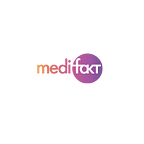Blockchain is revolutionizing industries worldwide, including healthcare. It is considered the next big breakthrough after the internet, changing how people do business, communicate, and interact. Blockchain provides a new way to access services and transactions without intermediaries, and its potential use cases in healthcare and life sciences are immense. It has the power to redesign the financial operations of the healthcare ecosystem, eliminate intermediaries, improve processes, and create new business models. The near future is expected to witness the widespread application of blockchain technology in every part of the healthcare industry, bringing about a new era of innovation.
In the healthcare and life sciences market, the global size of blockchain technology is projected to be worth around $12.5 billion by 2028, with a growth rate of 64% during the forecast period of 2021 to 2028, according to a report by Vision Research. The market size was valued at $321.0 million in 2020.
Disruptive Changes in Healthcare and Life Sciences with Blockchain
Blockchain has the potential to bring about significant changes in the healthcare and life sciences sector, including
- Peer-Oriented Health Insurance: Blockchain has the potential to transform the group insurance market, increasing transparency, reducing administrative costs, and enabling peer-to-peer (P2P) health insurance.
- Dynamic Health Insurance: Blockchain-based smart contracts can adjust premiums based on real-time health data from wearables, incentivizing healthy behaviors and enabling dynamic health insurance programs.
- Supply Chain Inefficiencies: Major healthcare corporations are utilizing blockchain to streamline supply chain management, addressing issues like fraud, errors, and delays in the pharmaceutical supply chain.
- Detection and Prevention of Counterfeit Drugs: Blockchain provides a transparent and immutable chain-of-custody log, ensuring the authenticity of drugs and preventing the entry of counterfeit drugs into the market.
- Clinical Data Interoperability: Blockchain facilitates secure and transparent data sharing among trusted partners, enabling seamless interoperability and utilization of clinical data for improved healthcare outcomes.
- Smart Contract-based Claim Processing: Blockchain simplifies and automates complex and time-consuming claims processing, reducing costs and improving transparency.
By utilizing blockchain, claims data can be stored securely and validated automatically, reducing the time needed for claim processing. Smart contracts can be designed to trigger automatic transactions for additional information or resolution of pending claims, minimizing the need for manual intervention. This can result in faster and more efficient claim adjudication and payment processes, reducing costs and improving overall transparency in the healthcare industry.
